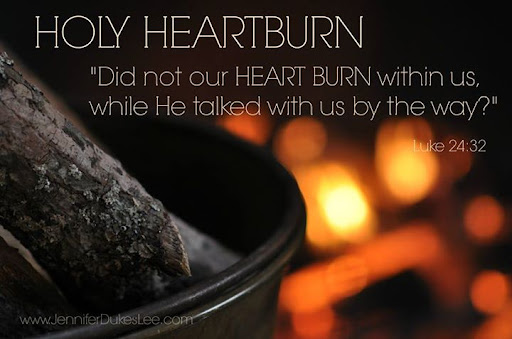My comments (as always) are in red:
<>Here is another Ironic moment in biblical teaching. While our Pastor Rusty is beginning his preaching on the book of Revelation, John MacArthur opened up the recent "Shepherd's Conference with a focus on eschatology.He really let us Amillennial Calvinists "have it".
Below is a part of a posting by Kim Riddlebarger on his blog. And below that are some of the points that John Mac made which are posted on another blog:
This is where I have departed company with John MacArthur (whom I have the utmost respect and trust in almost all aspects of his teaching) because of his teaching or view of eschatology. One reason that I question his view, off the top of my head, is that it seems you would never have a dispensational view of the Bible if it weren't for the Schofield and Ryrie Study Bibles that had developed the 7 part grid to be applied to the Bible. Here are some questions that John Mac asked and answered:
In his message, MacArthur addressed (and answered negatively) the following four questions:
1. Were the writers of the Old Testament amillennialists? No
2. Were the Jews of Jesus time amillennialists? No
3. Was Jesus an amillennialist? No (cf. Acts 1:3, 6-7)
4. Were the apostles amillennialists? No (cf. Acts 3:19-21, 25; 15:15-17; Rom. 3:3-4; 9:6-8, 13; 11:26-29)
One of the things that stands out to me with the "Thousand year reign on Earth" would be that it seems like there would be people with "glorified" bodies living amoungst people on Earth with "fallen" bodies on a "fallen Earth".
I don't mind John MacArthur calling attention to the seriousness of eschatology, and questioning the "Amillennial" view. It challenges us all to dig in and make sure we know what we believe and why we believe it. This is certainly an area that I need to do more digging in.
I hope you enjoy this challenging post about eschatology.
Grace and Peace,
Chris
Coram Deo!!!
In the wake of John MacArthur's recent and unfortunate comments about amillennialism, a number of you have emailed me, asking some variant of this basic question: "I have a great deal of respect for Dr. MacArthur and am troubled by what he said." Some felt he raised serious issues and wanted immediate responses, while others were just plain angered and wanted ammunition to fight back.
Let me respond to this by simply reiterating some of the basic amillennial resources currently available--resources of which Dr. MacArthur is obviously not aware, or sadly, chose not to consult. I have already mentioned some of these books in my previous post, but now want to take to time to explain why these particular volumes are important, especially if you are troubled by Dr. MacArthur's comments.
In light of MacArthur's "five questions" (Click here: Pulpit Magazine » Blog Archive » Why Calvinism Necessitates Premillennialism), these are books that all parties interested in this topic must read. Those of you who are dispensationalists and claim to be "Reformed" this especially applies to you. Don't just take MacArthur's word as the "last word." See for yourself if what he said about amillennialism is true and whether or not his dispensationalism stands up under biblical scrutiny.
The first is Mike Horton's God of Promise (Click here: Amazon.com: God of Promise: Introducing Covenant Theology: Books: Michael Horton). Covenant theology is the glue which holds Reformed theology together. Covenant theology is not a product of medieval-Reformation scholasticism which is then mechanically imposed on the biblical text. Horton argues that covenant theology is Scripture's own internal skeletal structure. So, start here. Read Horton, and interact with his arguments and biblical evidence.
The second is my own A Case for Amillennialism (Click here: Amazon.com: A Case for Amillennialism: Understanding the End Times: Books: Kim Riddlebarger). I make the case that as a Christian, the Christ-centered New Covenant is the hermeneutical lens through which I must read all of Scripture (even the Old Testament). I am not a Jew. Christ and the Apostles tell me what the Old Testament means (in terms of how it reveals Christ in type and shadow). The New Testament tells me how Christ and his church fulfills the Old Testament covenant promises. I also deal with important biblical passages like Daniel 9:24-27, Romans 9-11, the Olivet Discourse and Revelation 20.
For the rest of Kim Riddlebarger's comments and other comments posted on his blog click on this link:
Why Calvinism Necessitates Premillennialism
March 7th, 2007
In the opening session of the Shepherds’ Conference, John MacArthur challenged the men to take eschatology seriously, noting that the end of the story matters. He further asserted that, of all people, Calvinists should be the most enthusiastic about premillennialism — because they take the doctrine of election and the biblical covenants so seriously. If God’s calling and covenants are irrevocable, then Israel necessarily has a future based on the Old Testament promises. To read the details of John’s message, please see Tim Challies’ report.
In his message, MacArthur addressed (and answered negatively) the following four questions:
1. Were the writers of the Old Testament amillennialists? No
2. Were the Jews of Jesus time amillennialists? No
3. Was Jesus an amillennialist? No (cf. Acts 1:3, 6-7)
4. Were the apostles amillennialists? No (cf. Acts 3:19-21, 25; 15:15-17; Rom. 3:3-4; 9:6-8, 13; 11:26-29)
To this could be added…
5. Were the earliest church fathers amillennialists? No (see below)
Eusebius (c. 275–339) regarding Papias (c. 60–c. 135): Papias, who is now mentioned by us, affirms that he received the sayings of the apostles from those who accompanied them, and he moreover asserts that he heard in person Aristion and the presbyter John. Accordingly he mentions them frequently by name, and in his writings gives their traditions. . . . Amongst these he says that there will be a millennium after the resurrection from the dead, when the personal reign of Christ will be established on this earth.
Justin Martyr (c. 100–165): But I and others, who are right-minded Christians on all points, are assured that there will be a resurrection of the dead, and a thousand years in Jerusalem, which will then be built, adorned, and enlarged, [as] the prophets Ezekiel and Isaiah and others declare.
Lactantius (c. 240–c. 320): Therefore peace being made, and every evil suppressed, that righteous King and Conqueror will institute a great judgment on the earth respecting the living and the dead, and will deliver all the nations into subjection to the righteous who are alive, and will raise the righteous dead to eternal life, and will Himself reign with them on the earth, and will build the holy city, and this kingdom of the righteous shall be for a thousand years.
Philip Schaff (1819–1893): The most striking point in the eschatology of the ante-Nicene age is the prominent chiliasm, or millenarianism, that is the belief of a visible reign of Christ in glory on earth with the risen saints for a thousand years, before the general resurrection and judgement. It was indeed not the doctrine of the church embodied in any creed or form of devotion, but a widely current opinion of distinguished teachers, such as Barnabas, Papias, Justin Martyr, Irenaeus, Tertullian, Methodius, and Lactantius….
For those who were not able to attend the conference, this is definitely an MP3 you will want to get (even if you don’t consider yourself a premillennialist). The MP3s should be available online at http://www.shepherdsconference.org/ in a few days.


No comments:
Post a Comment